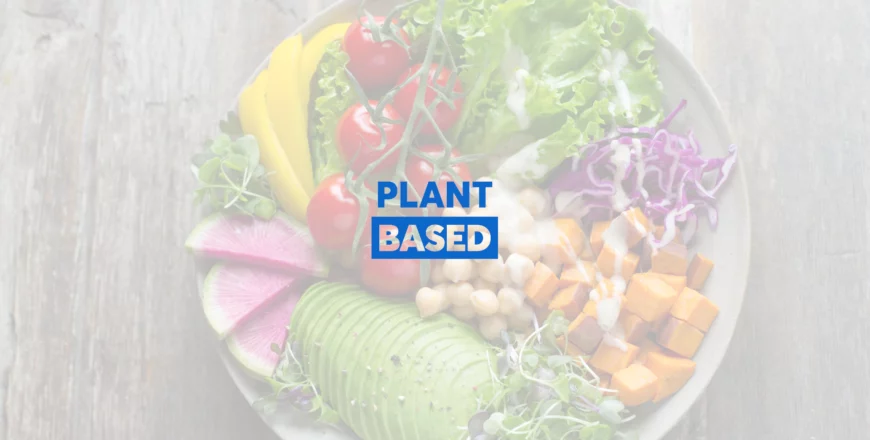
Course 26: Plant based
- Description
- Curriculum
- FAQ
- Reviews

Course Description (What the course is about)
The “Power of Plant-Based Eating” course provides a comprehensive exploration of the benefits, principles, and practical aspects of adopting a plant-based diet. Members will learn about the science behind plant-based nutrition, the environmental and ethical considerations, and how to create delicious and balanced plant-based meals. Whether you have never tried the plant based diet or looking to enhance your knowledge of plant-based eating, this course will empower you to make informed dietary choices that align with your health and values.
Course Outcomes (What you’ll learn)
By the end of this course, members will have:
- Understand Plant-Based Nutrition: Comprehend the nutritional components of plant-based foods, and learn how to create balanced meals that provide essential nutrients.
- Make Informed Choices: Evaluate the health, environmental, and ethical reasons for adopting a plant-based diet, and make informed dietary decisions that align with personal values.
- Plan and Prepare Plant-Based Meals: Design and prepare diverse, delicious, and nutrient-dense plant-based meals, using various cooking techniques and ingredients.
- Navigate Challenges: Overcome challenges associated with social situations, nutrient concerns, and maintaining balance on a plant-based diet.
- Promote Sustainability: Recognize the impact of food choices on the environment and contribute to sustainability by incorporating more plant-based foods.
- Develop a Personalized Plan: Create a personalized long-term plant-based eating plan that supports overall health, well-being, and individual goals.
-
1Course 26: Plant based diet - Introduction
-
2Lesson 1: Understanding Plant-Based Nutrition
-
3Lesson 1: Understanding Plant-Based Nutrition Quiz
-
4Lesson 2: Making Informed Choices on a Plant-Based Diet
-
5Lesson 2: Making Informed Choices on a Plant-Based Diet Quiz
-
6Lesson 3: Planning and Preparing Plant-Based Meals
-
7Lesson 3: Planning and Preparing Plant-Based Meals Quiz
-
8Lesson 4: Navigating Challenges on a Plant-Based Diet
-
9Lesson 4: Navigating Challenges on a Plant-Based Diet Quiz
-
10Lesson 5: Sustainability Through Incorporating More Plant-Based Foods
-
11Lesson 6: Creating a Personalized Long-Term Plant-Based Eating Plan
-
12Lesson 6: Creating a Personalized Long-Term Plant-Based Eating Plan Quiz
What is a plant-based diet, and how does it differ from a vegetarian or vegan diet?
A plant-based diet focuses on consuming primarily plant-derived foods, including vegetables, fruits, grains, legumes, nuts, and seeds. It may include limited or no animal products. While vegetarians avoid meat, and sometimes other animal products, and vegans exclude all animal products, a plant-based diet emphasizes whole plant foods while allowing flexibility in individual choices.
Can I get enough protein from a plant-based diet?
Yes, you can obtain ample protein from plant-based sources like beans, lentils, tofu, tempeh, quinoa, nuts, and seeds. Combining a variety of these protein-rich foods ensures that you meet your protein needs.
What are the health benefits of a plant-based diet?
A plant-based diet has been associated with various health benefits, including weight management, reduced risk of chronic diseases like heart disease, diabetes, and certain cancers, improved digestion, and enhanced energy levels.
Will I miss out on important nutrients by avoiding animal products?
A well-planned plant-based diet can provide all essential nutrients. However, you should pay attention to nutrients like vitamin B12, vitamin D, omega-3 fatty acids, iron, and calcium. Proper planning and potentially incorporating fortified foods or supplements can help address these concerns.
How can I ensure that I'm getting a balanced diet on a plant-based eating plan?
Focus on variety by including a wide range of fruits, vegetables, whole grains, legumes, nuts, and seeds in your meals. Planning balanced meals with a mix of macronutrients (carbohydrates, protein, and healthy fats) is key to meeting your nutritional needs.
How can I address challenges when dining out or attending social events on a plant-based diet?
When dining out, research restaurant menus in advance and communicate your dietary preferences to servers. You can also consider eating a snack before attending events to curb hunger, and offer to bring a plant-based dish to share.
Is a plant-based diet suitable for athletes and physically active individuals?
Yes, a well-designed plant-based diet can meet the nutritional needs of athletes. Focus on adequate protein intake, nutrient-dense carbohydrates, healthy fats, and staying hydrated.
How can I make sure I'm getting enough nutrients like iron and calcium on a plant-based diet?
Include iron-rich foods like beans, lentils, tofu, quinoa, and fortified cereals. For calcium, opt for plant-based sources such as fortified plant milks, leafy greens, almonds, and chia seeds.
Will I lose weight automatically on a plant-based diet?
Weight loss depends on factors like overall calorie intake, portion sizes, and activity levels. While a plant-based diet can contribute to weight loss, making mindful food choices and managing portions are important.
Can I transition to a plant-based diet gradually?
Absolutely. Gradual transitions allow your body and taste preferences to adapt. Start by incorporating more plant foods into your meals and gradually reducing animal products.
Stars 5
3
Stars 4
0
Stars 3
3
Stars 2
0
Stars 1
0








